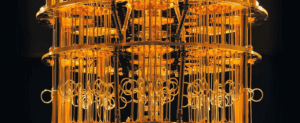Quantum News Briefs November 27: Alice & Bob Enable Companies to Prepare for Practical Quantum Computing with Industry-First Logical Qubit Emulator • SemiQon Debuts Cryogenic Transistor Aiming to Enhance Quantum Scalability • Japan Offering 200M Yen Prize for How to Apply Quantum Computing to Societal Issues • UOW Project Researching Use of Quantum Photon-Counting Detectors for Medical Imaging & Radiotherapy • US Bipartisan Quantum Funding Bill Advances from Committee

Alice & Bob Enable Companies to Prepare for Practical Quantum Computing with Industry-First Logical Qubit Emulator

Alice & Bob, a global leader in the race for fault-tolerant quantum computing, has announced Felis 1.0, its toolbox featuring the first-ever logical qubit emulator. Felis allows users to prepare for impactful quantum computing today by facilitating the transition from NISQ to fault-tolerant algorithm.
While logical qubits are necessary to achieve the level of reliability quantum computers need to be useful, they also come with noticeable differences with respect to today’s quantum hardware. Quantum algorithm developers will need to recompile their algorithms and reduce the overhead introduced by error correction to a bare minimum. As a result, logical qubit emulation is a key transitionary tool to examine how future quantum computers will differ from today’s devices, better understand what to expect from them, and start optimizing algorithms for them.
Built on top of Qiskit, the most popular quantum computing framework, Felis leverages the power of the Qiskit ecosystem while adding cat-qubit-specific capabilities. It enables the execution of logical quantum algorithms and workflows designed for useful quantum computers based on cat qubits, offering a comprehensive platform for algorithm development and logical qubit experimentation.
Felis users can tune hardware parameters and error rates to model their algorithms on different expected hardware maturity, both short and long-term. The goal of Felis’ flexibility is the exploration of quantum error correction techniques with logical qubits based on the innovative cat qubit, this will in turn allow researchers to observe potential gains in hardware efficiency and on overhead enabled by Alice & Bob’s platform.
SemiQon Debuts Cryogenic Transistor Aiming to Enhance Quantum Scalability
 SemiQon, an emerging leader in the field of quantum computing hardware, has announced the launch of the world’s first transistor capable of functioning efficiently in cryogenic conditions.
SemiQon, an emerging leader in the field of quantum computing hardware, has announced the launch of the world’s first transistor capable of functioning efficiently in cryogenic conditions.
These devices will play a crucial role in addressing the critical challenge of scaling today’s quantum computers to fault-tolerant levels and unlocking the full potential of quantum for corporate users, governments and other key stakeholders. The transistors can also be mass produced using existing CMOS fabs, with no new infrastructure required.
Until now, traditional electronic components have typically been used in ultra-low temperatures, equipment which chronically underperforms in such conditions. This represents a major roadblock on the path to reaching fault tolerance.
By reducing heat dissipation by 1,000x, SemiQon’s new transistor allows for control and readout electronics to be placed directly inside a cryostat, alongside the processors, but without causing the disruption that dissipation of heat brings to these systems. This simplifies the growing complexity around control and read-out of quantum processors as they continue to scale up, which is a serious challenge with few other viable solutions.
In Other News; The Asahi Shimbu Reports “Japan Competition Offering 200M Yen Prize for Bold Ideas to Apply Quantum Computing to Societal Issues”
 Japan’s New Energy and Industrial Technology Development Organization (NEDO) recently announced a competition that requires contestants to match wits in a contest to apply quantum computing to major societal issues according to Ryo Sasaki, of Asahi Shimbun in November 27. article. The open call and recruitment period for participants without expertise in quantum computing will be held until noon on December. 13
Japan’s New Energy and Industrial Technology Development Organization (NEDO) recently announced a competition that requires contestants to match wits in a contest to apply quantum computing to major societal issues according to Ryo Sasaki, of Asahi Shimbun in November 27. article. The open call and recruitment period for participants without expertise in quantum computing will be held until noon on December. 13
NEDO hopes to recruit untapped geniuses and experts from different fields to the competition with prize money of about 200 million yen ($1.3 million) for winning ideas.
The contest will present concrete issues facing Japanese society, such as natural disasters or the aging  population, to the participants. Then, the participants will compete individually or in groups to think up new ways to solve these social issues using quantum computing.
population, to the participants. Then, the participants will compete individually or in groups to think up new ways to solve these social issues using quantum computing.
The three societal issues will be selected through an open call for suggestions from the public, and the participant or group with the highest scoring solution for each issue will receive a prize of 20 million yen or more.
Applications to compete can be made by individuals or groups.
The contest is scheduled to start in March 2025 and the final judging committee will be held in August 2026.
For more information, visit NEDO’s website at https://qc-challenge.nedo.go.jp/
UOW Project Researching Use of Quantum Photon-Counting Detectors for Medical Imaging & Radiotherapy
A University of Wollongong (UOW) project that aims to improve diagnosis and treatment for cancer patients by transforming medical imaging and radiotherapy has been awarded funding through the Australian Government’s Critical Technologies Challenge Program.
The project, known as LANTERN, is led by Honorary Fellow Dr Saree Alnaghy from the School of Physics and has been awarded $350,203 in feasibility funding.
Dr Alnaghy and his team will develop an advanced imaging system using state-of-the-art quantum photon-counting detectors. This cutting-edge technology promises to revolutionise the way radiotherapy is delivered by significantly enhancing imaging quality, particularly for challenging cases like brain tumours.
The improved imaging will allow clinicians to pinpoint tumours with greater precision, reducing the risk of damage to surrounding healthy tissue.
In Other News: NextGov Reports “Bipartisan Quantum Funding Bill Advances from Committee”

The always excellent Alexandra Kelly recently reported in NextGov that the Department of Energy Quantum Leadership Act of 2024 will head to the Senate floor as part of a push to continue federal investment into quantum computing research and development.
The Department of Energy Quantum Leadership Act of 2024 — a bipartisan bill authored by Sens. Dick Durbin, D-Ill., and Steve Daines, R-Mont. — contains multiple provisions related to quantum technology and sciences research, namely funding federal efforts in quantum networking research and development, establishing domestic foundry programs and conducting industry outreach efforts.
Pursuant to the bill’s name, these research efforts will be helmed by Energy through a budget of $2.5 billion distributed over the next five years, should the bill pass into law.

























